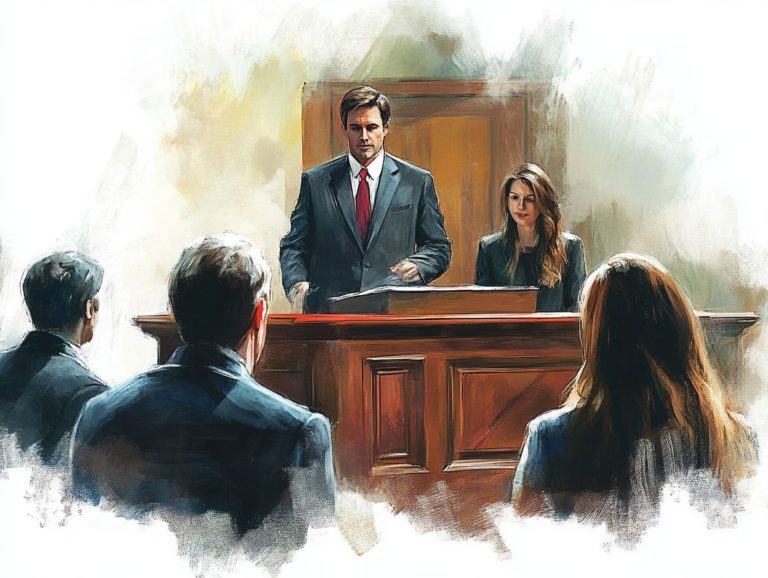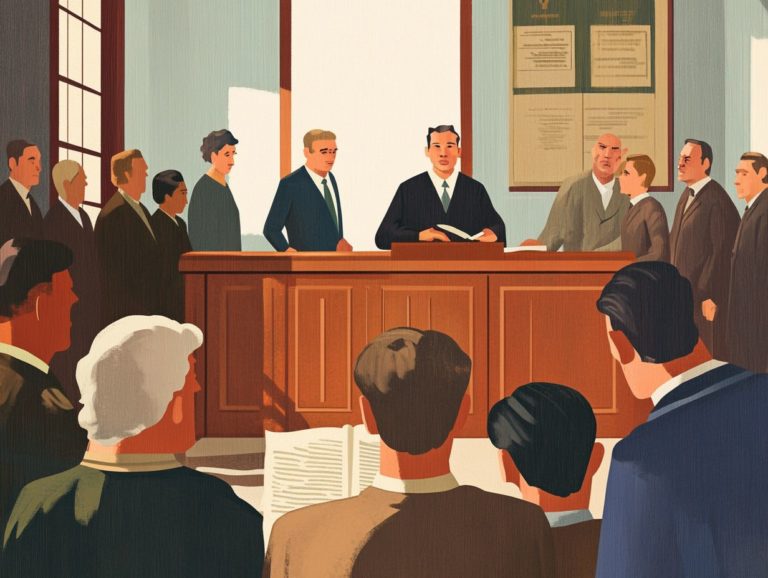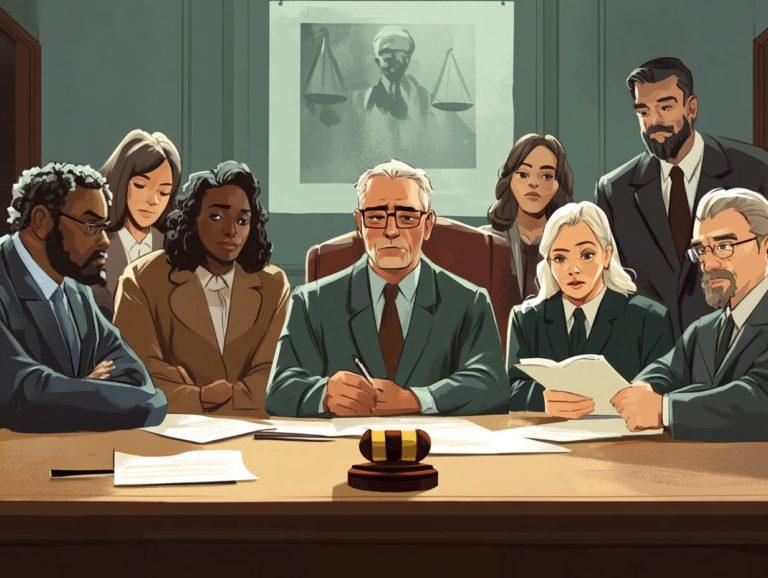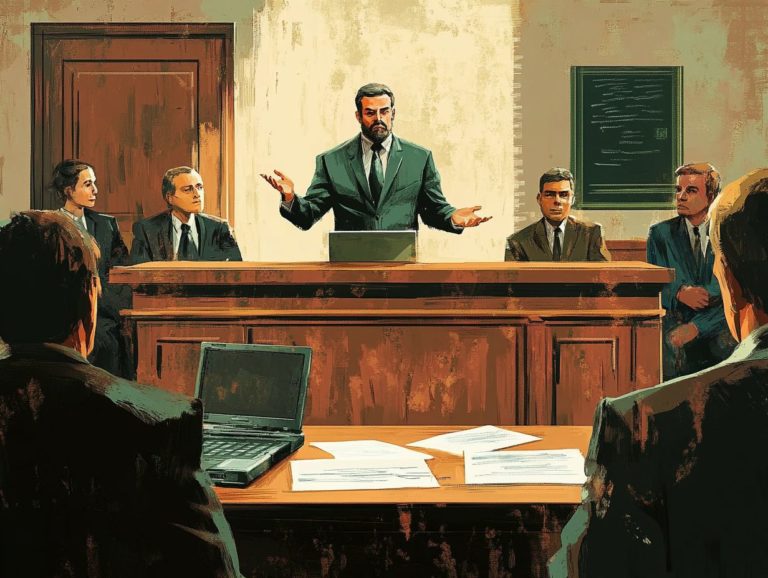How to Prepare for Cross-Examination
Cross-examination is a pivotal element in legal proceedings. The art of effective questioning can determine the outcome of a case.
Grasping its nuances is vital for anyone stepping into the courtroom be it a lawyer, witness, or defendant. This article delves into the intricacies of cross-examination, covering everything from preparation and evidence organization to anticipating potential questions.
It highlights strategies for effective communication, identifies common pitfalls to avoid, and offers final tips to elevate your performance. Ready to take your skills to the next level? Let s dive in!
Contents
Key Takeaways:
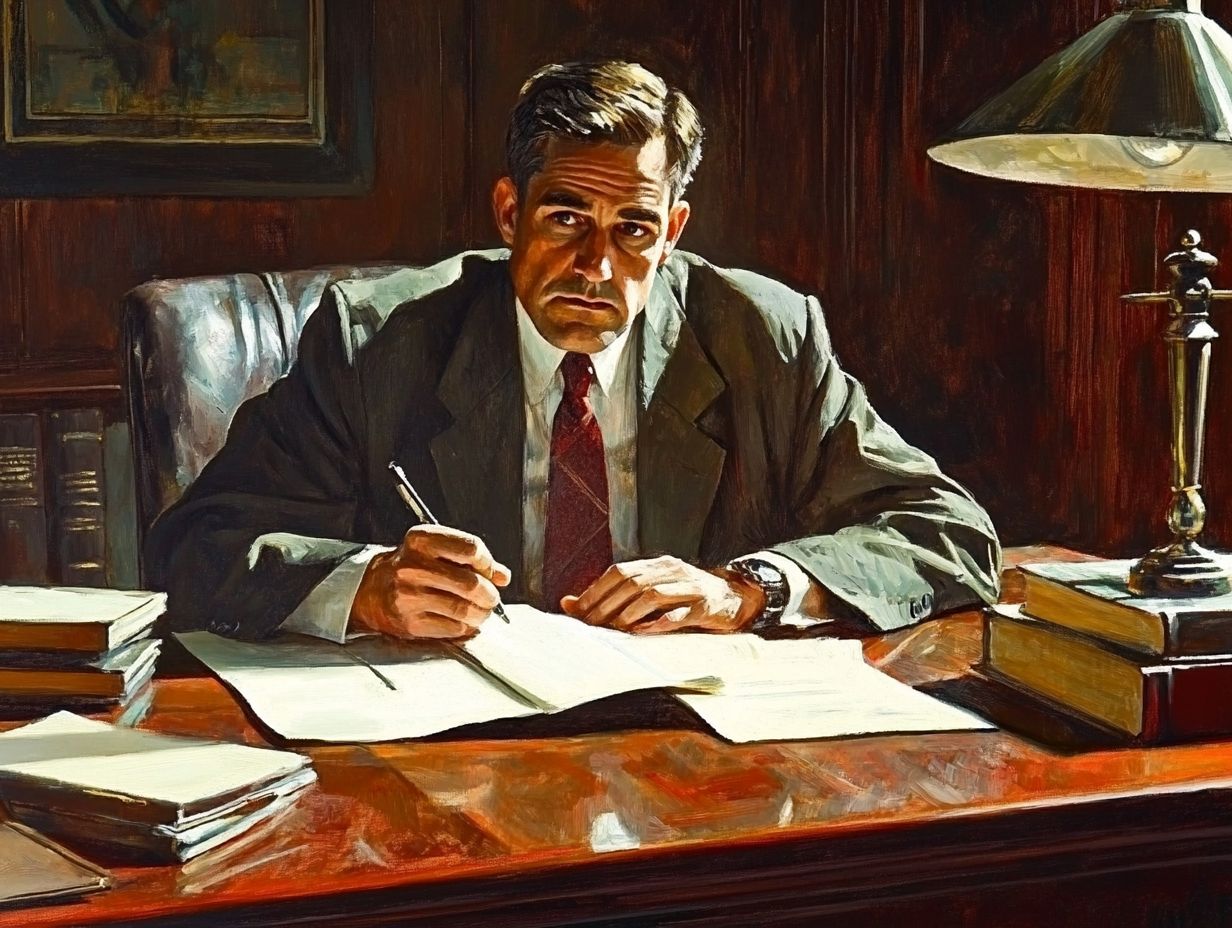
- Understand the purpose of cross-examination.
- Research and organize evidence effectively.
- Anticipate questions and prepare concise answers.
Understanding Cross-Examination
Understanding cross-examination is essential for legal professionals. It can profoundly affect the jury’s perception of witness credibility and shape the narrative in court.
This critical process involves opposing counsel challenging the direct testimony offered by an expert witness. They use various legal tactics, including leading questions designed to extract evidence and undermine claims made by the opposing party.
Mastering cross-examination requires a firm grasp of courtroom communication techniques, an understanding of legal standards, and the skill to craft compelling, fact-based testimony. Each of these elements is vital for effective trial preparation.
What is Cross-Examination?
Cross-examination is an essential legal process where a witness is rigorously questioned by opposing counsel. This questioning challenges the witness’s credibility and the validity of their expert testimony.
This technique plays a crucial role in courtrooms. It allows attorneys to expose inconsistencies, highlight biases, or uncover additional details that the witness may not have disclosed earlier.
By strategically probing statements and posing pointed questions, legal representatives aim to weaken the impact of the opposing side’s arguments, ultimately strengthening their own case. Effective cross-examination can significantly shift the direction of a trial.
Preparing for Cross-Examination
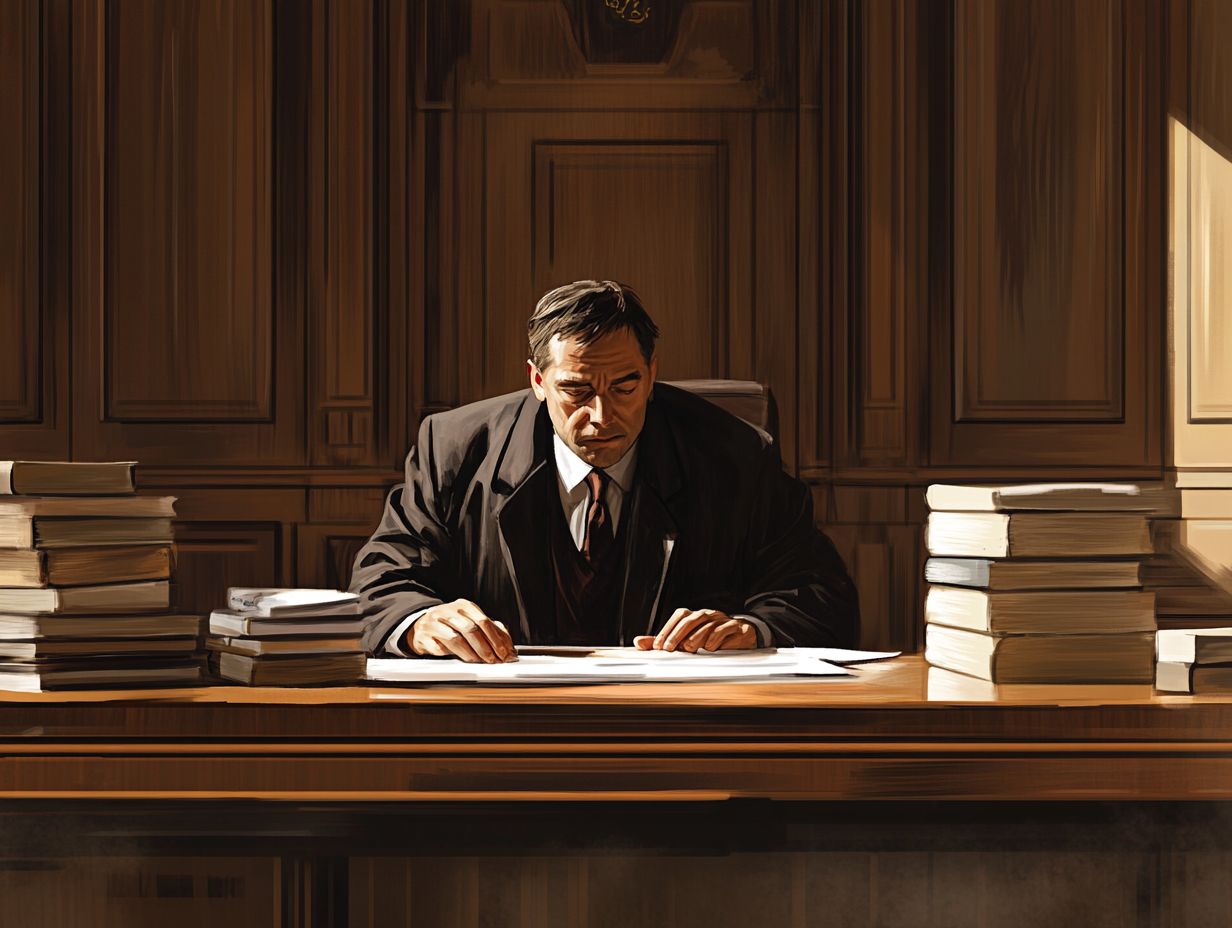
Preparing for cross-examination is a crucial aspect of trial preparation. It demands thorough legal research, careful evidence extraction, and detailed client preparation, highlighting the importance of cross-examination in defense.
This process equips you as an attorney to challenge opposing claims effectively.
Researching and Organizing Evidence
Researching and organizing evidence is essential for your cross-examination preparation. It enables you to gather pertinent facts and expert testimony for strategic questioning.
A meticulous approach involves using various techniques and tools that streamline the extraction and categorization of relevant data. E-discovery solutions, for instance, can be invaluable for sifting through vast amounts of electronic information to pinpoint essential documents and communications.
These tools boost your efficiency and ensure that no crucial piece of evidence slips through the cracks. Effective research techniques can significantly enhance your ability to craft compelling arguments and counter opposing claims during cross-examination, ultimately swaying the outcome of the case in your favor.
Now that you understand the essentials of cross-examination, let s put your knowledge into practice!
Anticipating Questions and Formulating Answers
Anticipating questions and crafting thoughtful answers is an essential skill that can significantly elevate your effectiveness during cross-examination, especially when facing leading questions from opposing counsel.
To master this skill, engage in thorough preparation. Dive deep into the case materials and grasp the nuances of your arguments. Leveraging expert opinions can be a game changer; by identifying areas where experts might testify, you can equip your clients to respond to potential inquiries confidently.
Employ courtroom techniques, such as practicing mock depositions simulated court sessions to practice questioning or engaging in role-playing scenarios. These methods empower you to manage your witnesses’ responses effectively. This proactive strategy instills confidence and ensures you re prepared to handle complex situations during trial depositions.
Strategies for Success in Cross-Examination
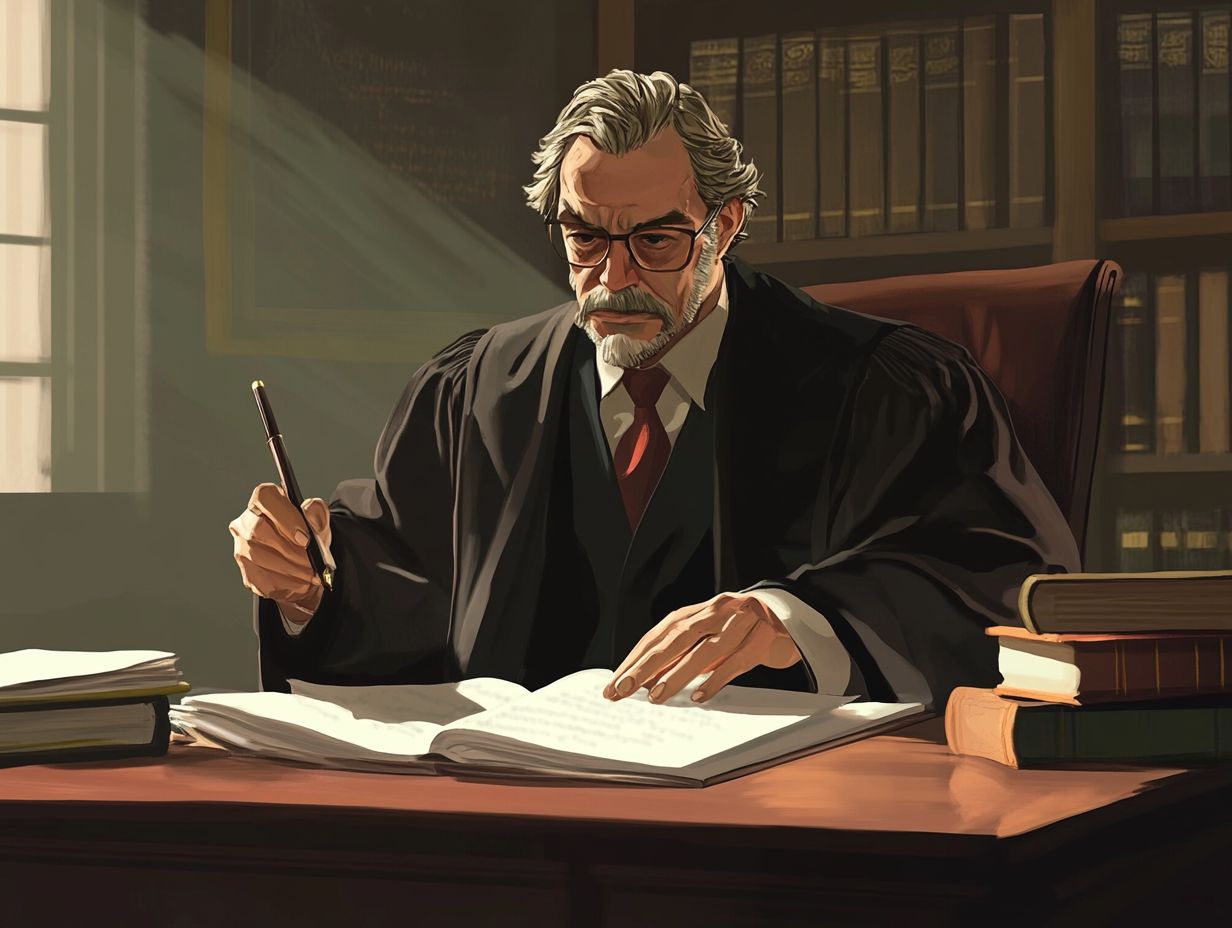
Implementing successful strategies during cross-examination is essential for you as an attorney. These strategies enhance your courtroom communication and help influence the jury s perception while effectively challenging the testimony of expert witnesses.
Effective Communication and Body Language
Effective communication and body language are paramount in cross-examination, as they shape the jury’s perception of witness credibility and the overall impact of expert testimony.
This intricate interplay is vital for conveying both verbal messages and non-verbal cues. For example, when a witness maintains eye contact, it enhances their reliability in jurors’ eyes. In contrast, fidgeting or avoiding gaze may cast doubt on their honesty or memory.
Your posture, gestures, and facial expressions as an attorney can amplify the persuasive power of your questions or inadvertently reveal uncertainties, influencing the jury’s assessment of the entire case. Grasping the nuances of spoken words and physical demeanor is crucial for crafting a compelling narrative.
Handling Difficult Questions
Handling difficult questions during cross-examination requires polished courtroom techniques and a deep understanding of the legal strategies available to navigate challenging moments.
Remain composed under pressure and be ready to employ various methods to redirect or reframe inquiries as they arise. For instance, pausing to gather your thoughts ensures that your responses are strategically crafted replies rather than knee-jerk reactions.
Utilizing language that steers attention away from the core issue can be a powerful tactic; for example, spotlight inconsistencies in the witness’s previous statements to chip away at their credibility. Keeping control of the courtroom dialogue is paramount, ensuring jurors stay engaged and focused on the critical issues at play.
Common Mistakes to Avoid
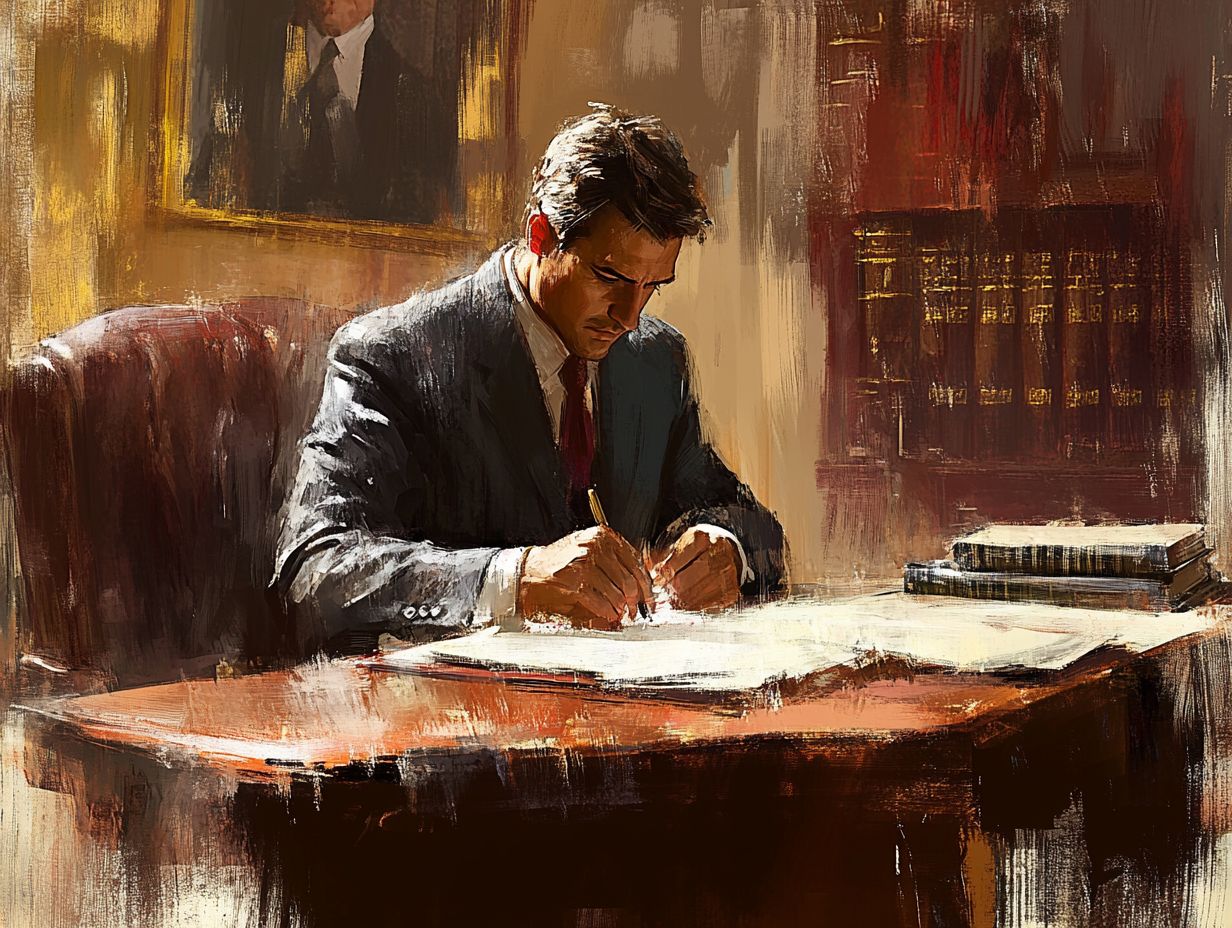
Recognizing and avoiding common mistakes during cross-examination is crucial for preserving witness credibility and ensuring that effective legal strategies are employed throughout the courtroom process.
By honing this skill, you can significantly enhance your case and navigate the complexities of the trial with finesse.
Missteps to Watch Out For
Be vigilant about missteps during cross-examination, as they can undermine your case. Be cautious with leading questions improperly framing inquiries might suggest unintended answers, leading to confusion for the witness and planting doubt in the jury’s mind.
Establishing rapport with expert witnesses is crucial. Failing to connect with them may lead to unclear testimony, complicating your case narrative. Such missteps not only diminish the witness’s credibility but could also weaken your legal arguments’ overall impact.
As a result, both the jury’s perception of the witness and your case’s integrity may suffer, potentially influencing their decision in unexpected ways.
Final Tips for a Successful Cross-Examination
Final tips for a successful cross-examination encompass various strategies that can elevate your trial preparation, refine your courtroom techniques, and sway the jury’s perception during legal proceedings.
Don’t miss this opportunity to practice these strategies and become more adept at cross-examination!
Key Takeaways and Reminders
Maintaining witness credibility is crucial during questioning. Use expert opinions and effective communication techniques for the best results.
Successful questioning requires a thoughtful approach. It s about creating an atmosphere that encourages honest responses.
Be ready to adjust your tactics based on the witness’s behavior and testimony. Active listening helps you anticipate their next move.
Building rapport can lead to more honest answers. Visual aids can clarify your points and strengthen your arguments.
This strategy enhances your overall case and ensures that your questioning leaves a strong impression.

